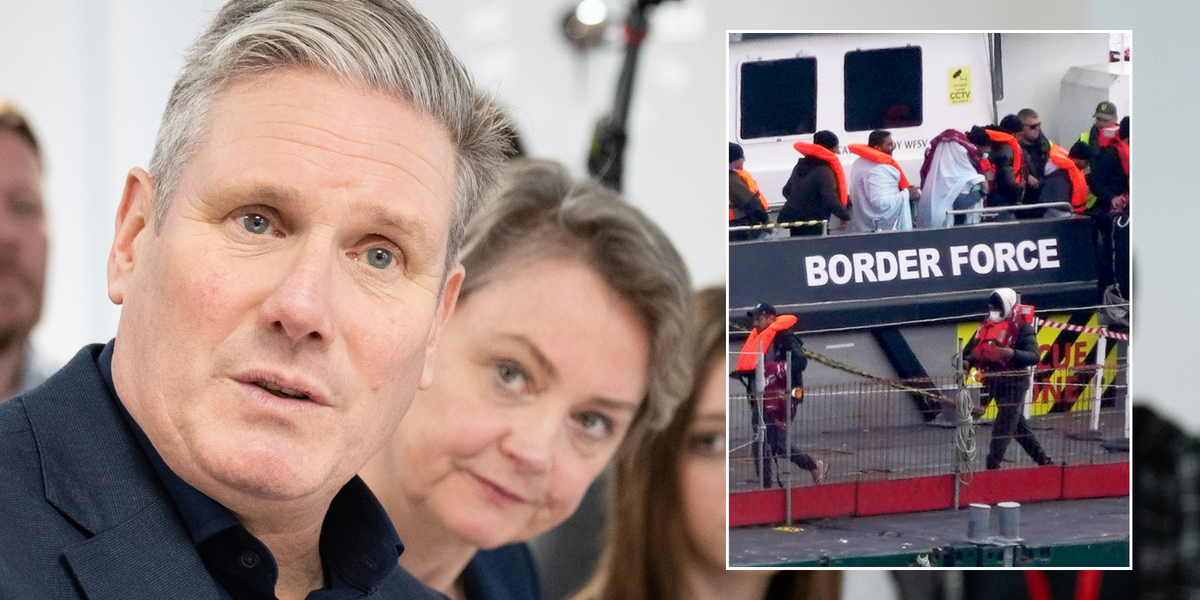The most dominant faith of our time — the most widespread worldview — is that humans are ordinary animals that live in a world governed by physical laws that operate mechanically — like the workings of a clock.
Physical laws are regarded as the only “true” and reliably known thing in the modern world, and man can gain closer understanding of these truths by means of modern science that works by analysis and eliminating the distortions that come from subjectivity and human motivations.
We use statistics to ensure that our findings remain “objective,” and for the gold standard of the “double-blind” experiment to be achieved, great care must be taken to deceive all involved parties. Both the observer and the observed are deliberately kept unaware of what is happening — apparently because our wishes might otherwise contaminate the results of our inquiry about the objective world and obstruct true understanding. We blind ourselves, so that we may better see.
The physicist Werner Heisenberg is credited with formulating the principle of “uncertainty,” which posits that on the micro scale, objective understanding is strictly impossible because observation or understanding inherently requires interaction. In other words, engaging with reality changes it.
This uncertainty principle is a cornerstone of quantum mechanics, the deepest branch of modern physical inquiry. Quantum mechanics has replaced the previously dominant classical mechanics view of physics that was first established by the celibate Isaac Newton with Principia Mathematica in 1687 — when our inquiry goes deeply enough, the clockwork analogy of the world seems to fall apart and things get “weird.” Heisenberg remarked that “the first sip from the glass of natural science will make you an atheist, but at the bottom of the glass, God awaits.”
In addition to creating classical mechanics, Newton devoted much of his life to studying alchemy, which sought to master nature rather than merely describing it. Few know that the genius father of modern physics spent much of his life energy engaged in “magic” and playing the role of a weird sorcerer, who believed that arcane physical experiments were deeply connected to the inner life of the alchemist.
So, what is really going on? — is the world mechanical or not? What role does human will truly play in the cosmos?
By now, most people give up with these confused contradictions, throw up their hands and just accept the simple clockwork analogy and determine human subjectivity and agency is either insignificant or just too “mysterious” to think about.
We let the strange placebo effect and the irrationality and uncertainty of quantum mechanics remain unexplored so we can move on with our lives.
And so most people begin with a foundational worldview that the world is devoid of all meaning — we have no idea what meaning even is, nor do we trust human subjectivity or “values.” How do values even fit into a world that is purely rational and mechanical? They don’t, so we must dismiss them or reshape them to fit into the idea of the clockwork universe or Darwinist axioms.
Nested in these presuppositions, Darwin then brought the idea that humans evolved, just like all other life, through the ability of the “strongest” to outcompete opponents and pass on their own genes.
The most common “scientific” belief today, therefore, is the one of oppressive victors and oppressed victims. In modern biology, people speak of dominance hierarchies — the idea that the strong and ruthless “alpha male,” the leader of a chimpanzee troop, can rise to the top of the hierarchy and himself reproduce exclusively and assert his existence in the world, through superior power — the only meaningful question in the world.
Thus, our worldview about life itself and its evolution is understood as the result of a fundamental truth about the will to power.
To conform with this faith, we reinterpret the history of religion and religious values. We now see only the simplified story of how religion is a now-gone, harmfully superstitious bedtime story that crude and less enlightened people once used to oppress children. Churches were the means of suppressing and controlling the masses against their own interests.
These ideas creep into our thoughts about human relationships. “Love” becomes a question of one’s value in the commodified “sexual marketplace.” Here, one must take “the red pill,” which represents the belief that power in sexual relations is paramount. This contrasts with “the blue pill,” characterized by the belief that being kind and good will be rewarded with love.
As with all biology, the power to control is primary. Men must possess wealth, muscles, and a capacity for dominance to secure the best woman — the one who is beautiful and fertile.
The belief in the will to power was central to the philosopher Nietzsche, who argued that Christian morality was merely the result of the physically weak Judaism’s attempt to exact revenge on and tame the “blonde Aryan predator’s” healthy and vital desire to dominate and subjugate the Jew.
Christian ideas of good and evil were, for Nietzsche, obstacles to affirming life itself — a poison brewed by an envious loser. If we let God die and asserted ourselves as gods — what Nietzsche called the Übermensch — then the Aryan could finally step freely and shamelessly into the light. Like a glorified chimpanzee alpha male, he would liberate himself from all values and moral restraints, especially the illusion that he had any obligation to something in the heavens.
What a paradise Nietzsche here invented — a world with an elite that neither believes in good or evil nor feels obliged to ensure the wellbeing of its “slaves” as a condition of its superiority.
The problem, however, is that Nietzsche’s ideas don’t even work within a chimpanzee troop. Male chimpanzees that fail to benefit and foster loving and mutual relationships with their troop are killed the moment they show weakness. In nature, regimes of terror that disregard the “good” are unsustainable. We recognize this archetype in the children’s film The Lion King, where the evil and disrespectful king not only destroys himself but also the entire kingdom.
Nietzsche himself died a total loser. He was an incel — involuntarily celibate. He went insane after contracting syphilis because he had degraded himself to satisfy his base desires by fornicating with a diseased prostitute. Ordinary women would have nothing to do with him and rejected his marriage proposals. Is anyone surprised?
What irony that a man who claimed that might is right ended in total human failure. Even by his own standards. Must this not mean that his worldview was fundamentally wrong?
Many Nietzsche fans are eager to cleanse him of any association with Nazi ideology. But isn’t it obvious that believing Nietzsche’s cynical ideas naturally leads to a quest for domination? To claim Lebensraum — living space — for the superior Aryan race, as was Hitler’s plan? With the eastern general plan (Generalplan Ost), they planned to go all the way inside the borders of modern Russia, and Jews and Slavs were to be ethnically cleansed or killed to make room for the master race.
Nietzsche, in his writings, celebrated the ancient Greeks and Romans for pursuing such an amoral self-expansion — before the decadent, life-denying Christianity poisoned the “Aryan soul.”
But how did it turn out for Hitler and those Germans who tried to live by these ideals?
Millions of ethnic Germans died, and for all of the world it is now deeply taboo and effectively forbidden politically to favor ethnic European populations, who are becoming minorities in their historical territories where they are forced to lie about racial equality and be silent on the systematic rape of children. It’s an understatement to say that the application of Nietszchean ideas resulted in the most spectacularly catastrophic and humiliating failure, perhaps only surpassed by the one of Nietzsche’s own life.
It seems, then, that when one identifies with the Antichrist and dares defy morality and even the very concept of good and evil, a very different kind of law makes itself known — a law that cannot be discovered by the navel-gazing methods of modern science and analytical reasoning that can break things apart and “deconstruct.”
This natural pattern — archetype, or natural law of the universe — is vividly expressed in John Milton’s epic poem Paradise Lost, where the anti-hero protagonist is Satan himself. It’s the story of how Lucifer, the fallen angel, sought to assert his own will to power and to place himself above God, but was defeated and cast into hell along with his rebel angels.
— Satan, Paradise Lost
What is Nietzsche’s fall? Hitler’s fall? If not the same fall described as the archetype by John Milton? The proof that “will to power,” when isolated from service or the notion of moral right, collapses under the weight of its own vanity?
I propose that this reveals something fundamental about what “power” in reality truly is.
It is not how Nietzsche stated that “might is right,” but rather that “right makes might.”
Once you see it, you notice that the pattern has survived from the ancient world and is still almost omnipresent in modern mass culture. The first Spider-Man movie by Sam Raimi overtly explores the relationship between power and responsibility: Uncle Ben’s dying wish is that the hero lives on the faith that “great power comes with great responsibility,” while the mad Green Goblin tempts him to join in the Nietzschean worldview where ordinary people are nothing but tools for the elevation of the exceptional Übermensch.
Despite Nietzsche’s proclamations of the death of God, the hero archetype still unfailingly spellbinds humanity so Hollywood can turn a profit, as reliably as how airliners use the laws of aerodynamics to make planes fly, again and again by showing us a new hero with another face.
Heroic servant leadership is the central narrative of Christianity and the Savior’s only instruction on how to achieve greatness:
Jesus called them to Him and said, ‘You know that those who are regarded as rulers of the Gentiles lord it over them, and their high officials exercise authority over them. Not so with you. Instead, whoever wants to become great among you must be your servant, and whoever wants to be first must be the slave of all. For even the Son of Man did not come to be served, but to serve, and to give His life as a ransom for many.
— Mark 10:42-45
If one truly wishes to be modern man who believes in scientific and rational inquiry, why not conduct the experiment? Most people have tried atheism already and are probably no longer stupid enough to want to addict themselves to internet pornography or fornicating with a syphilitic whore without a condom — why not instead put the hypotheses and promises of Christ to the test? Is that not more interesting? More rational?
Try saying His prayers. Force yourself to act from the power of love. Say what you believe and know to be true. Perhaps even doing that weird ritual in church: consuming His body and drinking His blood. To help you believe that He could live in you.
Act on the belief that you have the power to do real good in the world if you truly apply yourself. That thing you know has been calling to you, but you are postponing it because you believe that it is beyond you? What couldn’t you do if you actually believed?
What wouldn’t you see? Seeing your Father in the sky, opening itself before you like Simba, or the code behind the Matrix like Neo? Could you ever dare to truly believe in that ecstatically grand promise that the priest gave you at your baptism?
That you are the son of Almighty God — and that this most incomprehensible gift was opened to you by the self-sacrifice of that perfect God-man, who asked you to pick up your own cross and follow him into immortality.
You could try these things and observe the outcome of your experiments. Record your results and conduct a statistical analysis of the empirical observations.
Or you could do what your heroic forefathers did, who gave themselves without counting.
What would happen to Europe — to the world — if just a few of us did?









